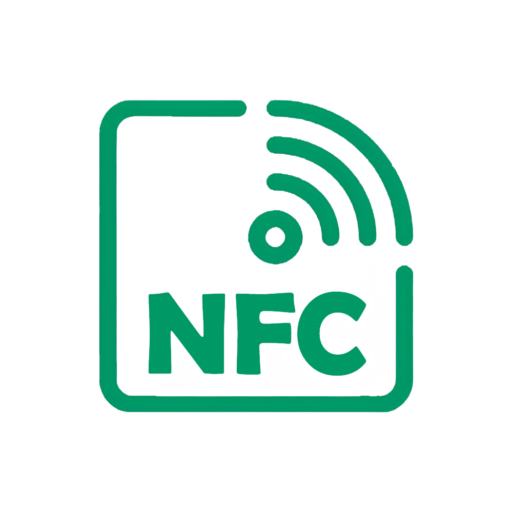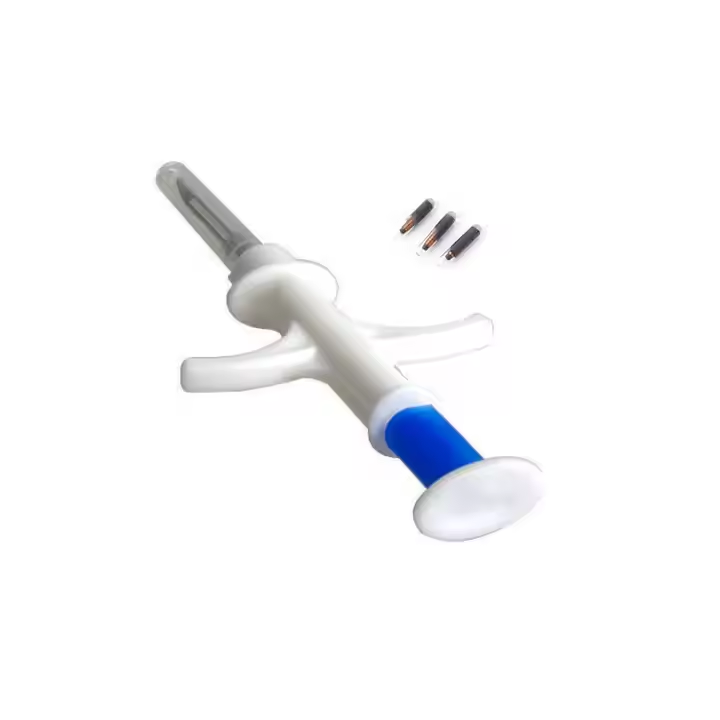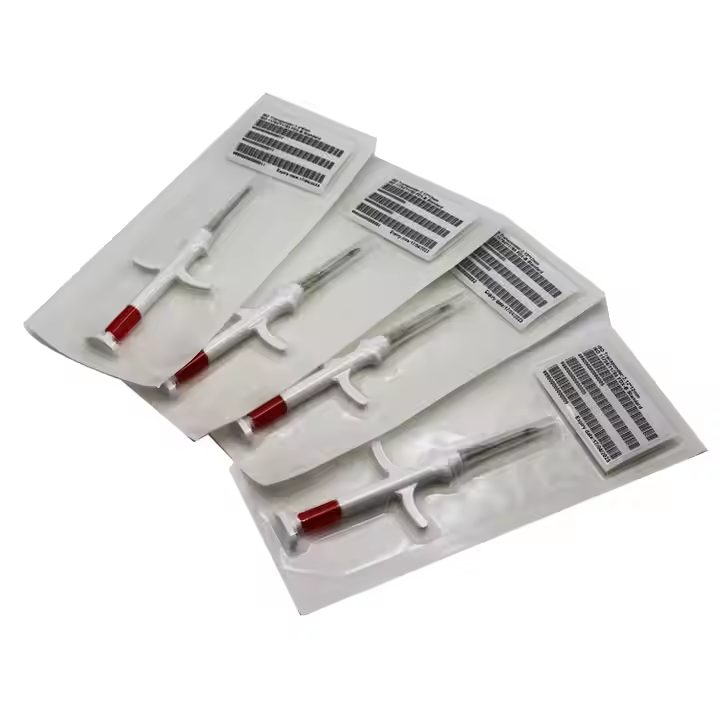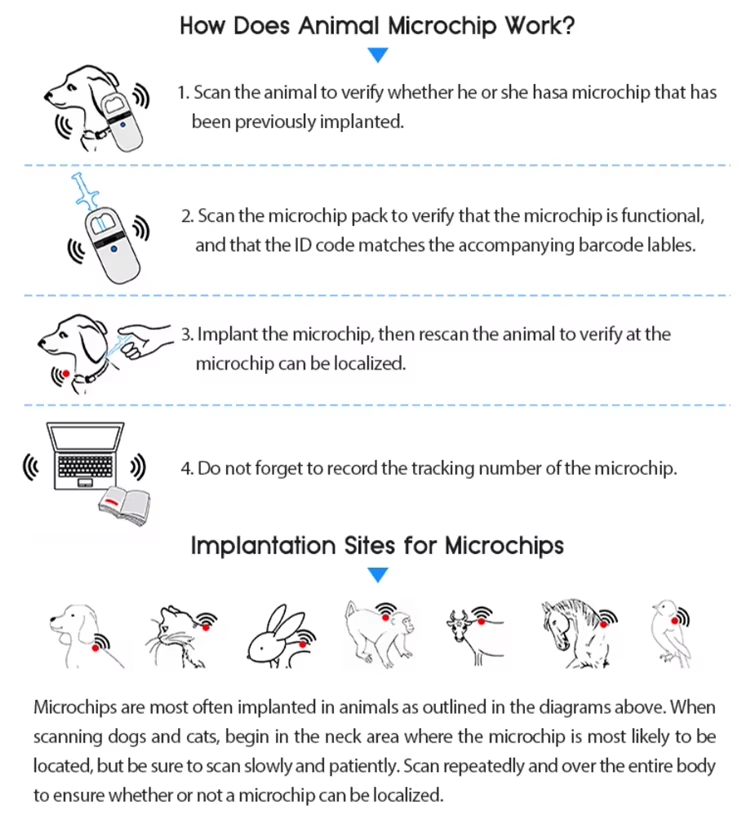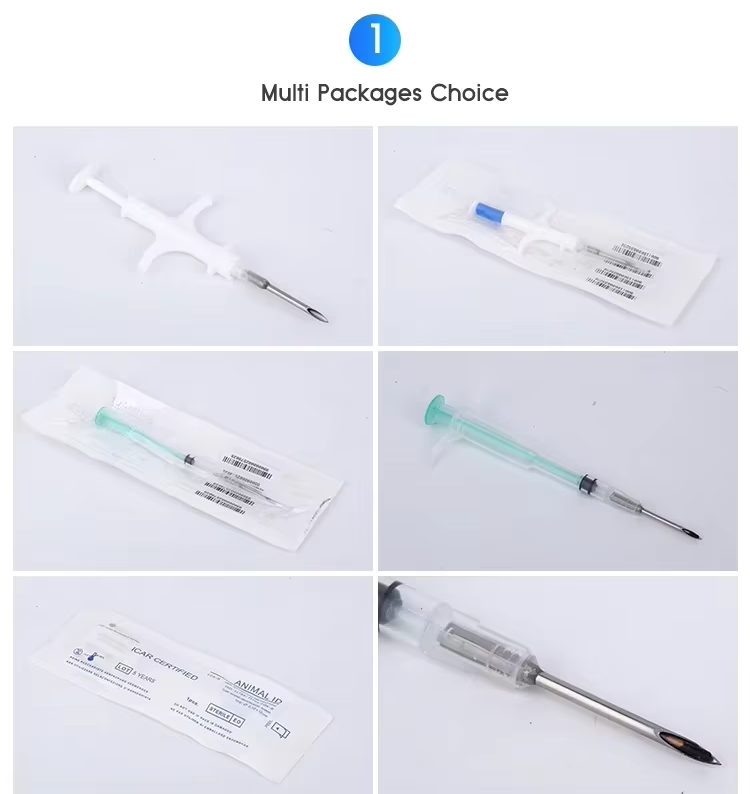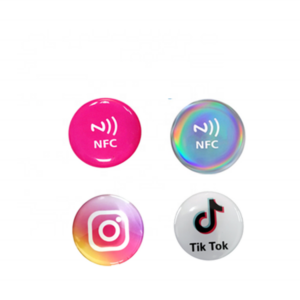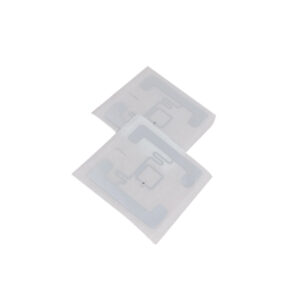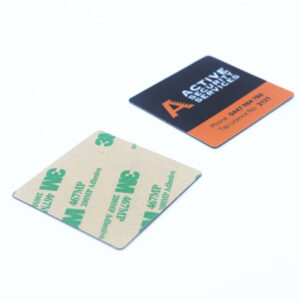RFID Implant Micro Tags For Pet ID Tracking
RFID Implant Micro Tags provide a reliable way to identify and track pets, ensuring their safety with long-lasting information storage and easy vet access.
Description
RFID Implant Micro Tags For Pet ID Tracking
In 2022, Japan stipulated that from June, pet shops must implant microchips in pets for sale. Previously, this requirement was only imposed on imported cats and dogs. In October of the same year, Shenzhen implemented the “Regulations on the Management of Dog Electronic Tag Implantation (Trial)”, and dogs without implanted chips will be regarded as unlicensed dogs. By the end of the year, Shenzhen achieved full coverage of dog chips. For many people, pets are family members, and the use of RFID Implant Micro Tags is equivalent to giving pets an “identity card” to facilitate supervision, epidemic prevention, and medical information management.
Application history and current status of pet chips
In fact, microchips have long been widely used in animal management: animal husbandry uses it to record livestock information, and zoologists implant microchips in wild fish or birds for scientific research tracking. The popularization of pet chips is mainly to prevent loss and provide protection for standardized management. At present, many countries have included it in mandatory measures:
-
France has required dogs over 4 months old to be microchipped since 1999, and expanded to cats in 2019;
-
New Zealand has stipulated that pet dogs must be injected with microchips since 2006;
-
The UK has made it mandatory for all dogs to be microchipped since 2016;
-
Chile implemented the “Pet Ownership Responsibility Law” in 2019, and nearly one million pets have been microchipped.
Functional advantages of RFID pet tags
✅ 1. Store rich information
RFID Implant Micro Tags can store information such as the identity, epidemic prevention, reproduction, and health of pets, and the reading device can quickly identify them in a non-contact manner. The chip can be implanted in the body (without affecting health) or hung on a collar. It has the characteristics of large information capacity, strong security, and high stability.
✅ 2. Efficient data collection
RFID chips support long-distance automatic identification and can read multiple tags at the same time. Pet managers can quickly collect information and upload it to the database for unified supervision.
✅ 3. Centralized information sharing
Combined with the management software platform, pet hospitals, animal immunization centers, etc. can achieve information sharing and unified management through unified RFID devices.
✅ 4. Powerful traceability function
When a pet is lost, the chip can help quickly find it. Pet hospitals can establish complete health records; management departments can also implement entry and exit supervision and epidemic prevention tracking.
Note: RFID chips do not have positioning functions and are only used for identity recognition. If positioning functions are required, it is recommended to use GPS collars. But whether it is walking a cat or a dog, the leash is the lifeline.
📌 Service life and safety
Although the injection needle is large, it uses medical siliconization to effectively reduce penetration resistance. In actual operation, the side effects of the chip implantation process on pets are very mild, and transient bleeding or slight hair loss may occur.
The chip has a service life of up to 20 years, which means that the pet only needs to be implanted once in its lifetime.
📌 Product Advantages
-
We are one of the core manufacturers of RFID Tag;
-
Provide free samples and small batch purchases;
-
All series of products are 100% tested and qualified before leaving the factory;
-
Provide 7×24 hours after-sales service support.
Product parameter table
| Project name | Parameter description |
|---|---|
| Product name | RFID Implant Micro Tags For Pet ID Tracking |
| Chip type | EM4305 / Supports a variety of hot-selling chips |
| Operating frequency | 134.2KHz (low frequency) |
| Chip specifications | 1.25×7mm / 1.4×8mm / 2.12×12mm / 4.0×34.58mm / Customizable |
| Storage capacity | Varies according to chip type |
| Rewritable | Support, up to 100,000 times |
| Material | Bioglass, antibacterial and anti-allergic, strong biocompatibility |
| Sterilization method | EO ethylene oxide gas sterilization, disinfection validity period of 10 years |
| Syringe material | Polypropylene (PP) |
| Syringe color | White, needle cannot be removed |
| Packaging form | Each bag contains 1 chip, 1 syringe, 6 barcode stickers |
| Testing standards | 100% comprehensive testing before leaving the factory |
| Applicable scenarios | Pet identification management (dogs, cats, fish, etc.) / other animal tracking |
❓Which animals can use RFID Implant Micro Tags?
Mainly used for pet dogs, cats, carp, and also suitable for wildlife tracking or livestock management.
❓Can the RFID Implant Micro Tags locate pets?
No. RFID Implant Micro Tags are only used for identity recognition. If real-time positioning is required, it is recommended to use a GPS collar.
❓How long can the RFID Implant Micro Tag be used?
It lasts up to 20 years and generally only needs to be implanted once in a pet’s lifetime.
❓Why choose your RFID Implant Micro Tags?
We are one of the top 5 RFID tag factories with more than 15 years of experience. We support free sampling and small batch procurement, and provide 7×24 hours after-sales service.
❓What does each RFID Implant Micro Tag syringe kit contain?
Each package contains 1 chip, 1 disposable syringe and 6 barcode stickers, used for information registration and management.
